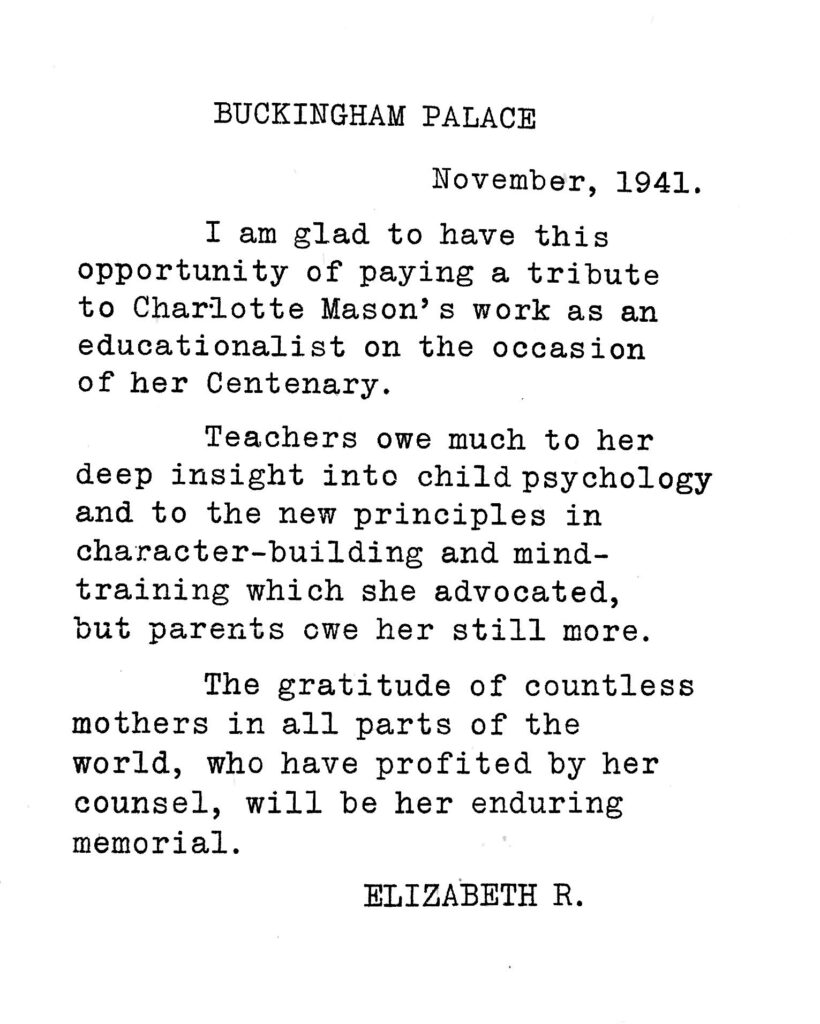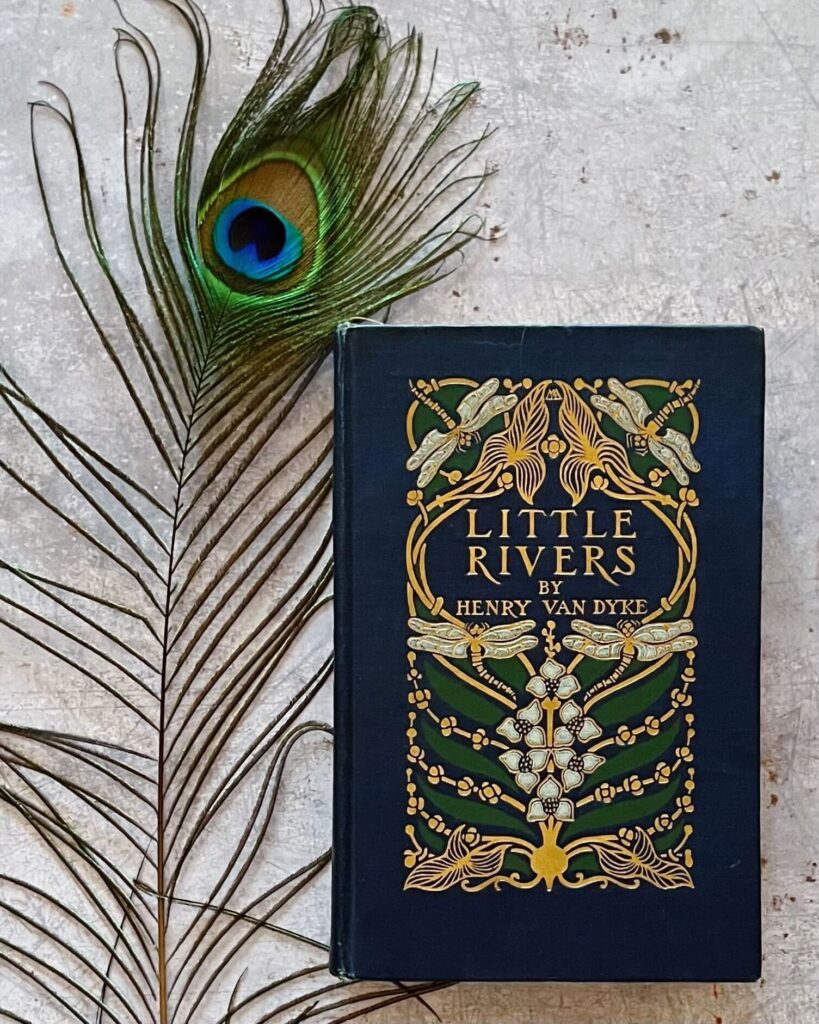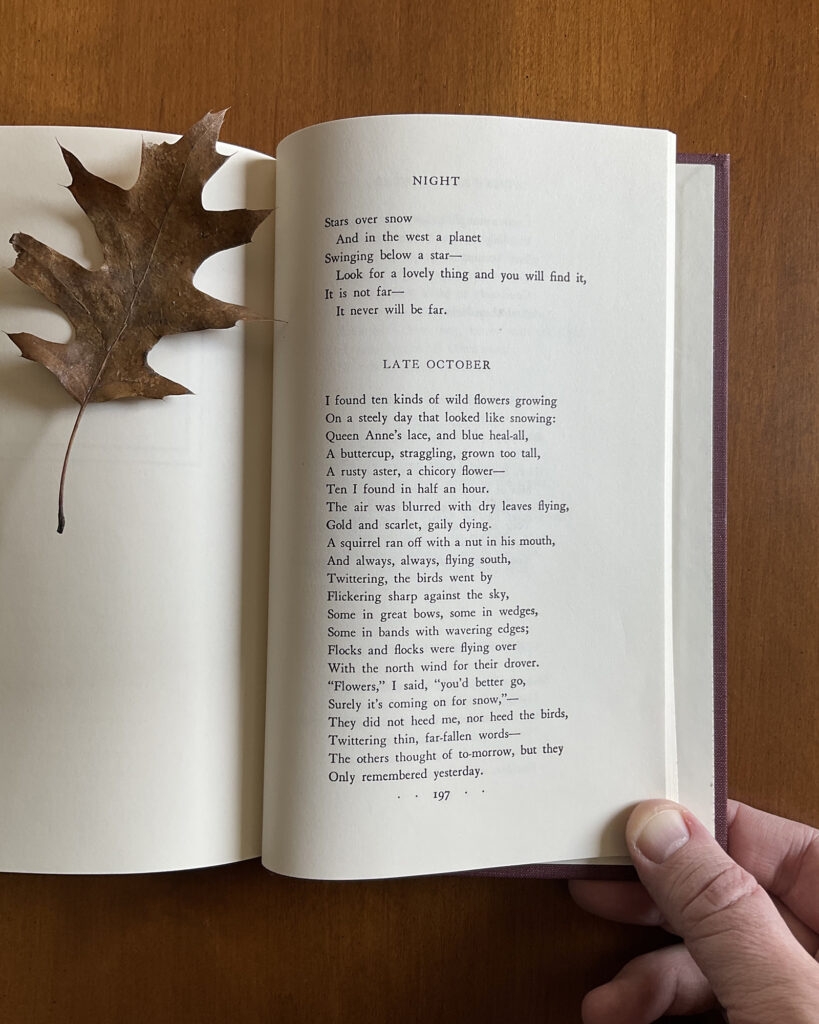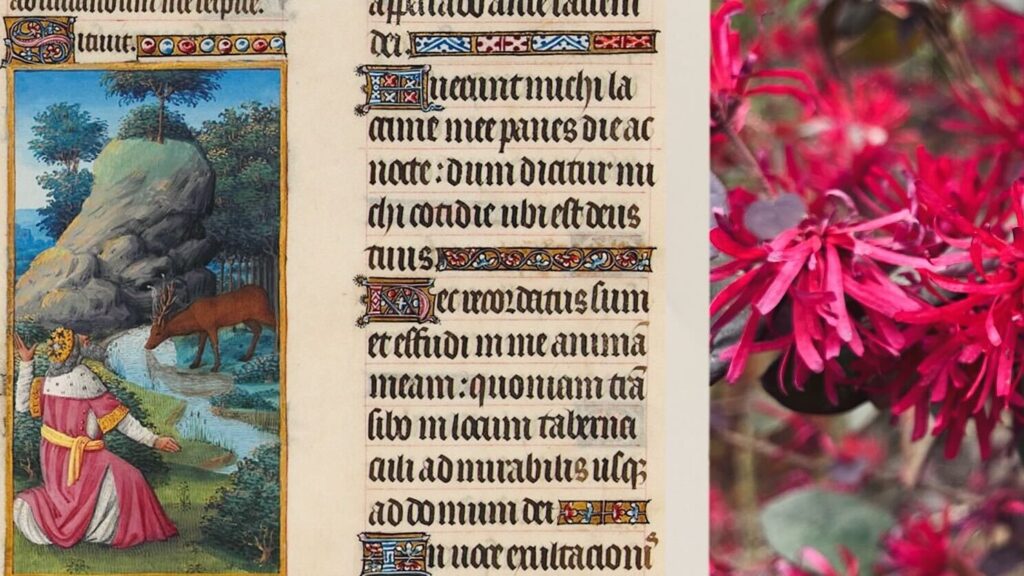The CMP Review — Week of February 27
February 27, 2023
“Truly parents are happy people—to have God’s children lent to them.” (The Story of Charlotte Mason, p. 7)
@tessakeath
February 28, 2023

In this year of 2023 many us are celebrating the 100-year anniversary of the life and legacy of Charlotte Mason. But it is not the first Charlotte Mason Centenary. In 1942, the January issue of The Parents’ Review was named the “Centenary Number” to celebrate the 100-year anniversary of Charlotte Mason’s birth.
That remarkable issue contained short appreciations of Charlotte Mason by archbishops, administrators, authors, and educators, as well as by a college professor, a poet, and a mother from Australia. All these contributors reflected on the enormous impact of Miss Mason on the world at large.
“Miss Mason’s ideas of education have developed naturally and wholesomely with the times,” wrote author Vyvyan Richards. “Like rings in water, the waves which her first impulse set radiating have opened out widely, but always centred upon her essential principles.”
The Charlotte Mason Poetry team has transcribed and recorded two of the essays from the first centenary. In the eight decades since 1942, the “rings of water” have radiated even more widely, but do they still center on her “essential principles”? One way to consider this is to reflect on how she was remembered back then.
Oh and besides those bishops and professors, there was one appreciation that was perhaps the most remarkable of all. A message from a queen. Reminisce on the first Charlotte Mason Centenary here.
@artmiddlekauff
March 1, 2023

We’re told not to judge a book by its cover, but what if it looks like this and the competition at the library used book sale is too fierce to luxuriate in the reading of a few random chapters?!
It came home with me. Are you a fellow book tragic? Let me know what book you’ve gotten solely due to its cover.
@rbaburina
March 2, 2023

In her little 1981 book Charlotte Mason Reviewed, Jenny King (CMT) wrote the following:
Learning of verse by heart comes easily to many children as they grow out of the nursery rhyme, so a wealth of poetry can be made their own. Parents can learn with their children and share in the pleasure of recitation.
When Miss King says “parents can learn with their children,” I think she means we can learn poetry by heart too. She calls it a pleasure, and I think I know why.
Charlotte Mason wrote, “Having found the book which has a message for us, let us not be guilty of the folly of saying we have read it.” If it is folly to say we have read a book, how much more to say we have read a poem. “The book that helps us,” explains Mason, “deserves many readings, for assimilation comes by slow degrees.”
As poems have been assimilated by slow degrees in our household, verses have overflowed from our hearts and into our nature journals and our conversations, enriching our family culture and giving us moments of shared joy.
I suppose I could have experienced all that even if I did not learn the poems too. But then I would not have experienced the deeper pleasure that I think Miss King was referring to. It is a pleasure that comes from the fullest method of assimilation I have discovered.
Having found the poem which has a message for us, Miss Mason might say, let us store it in our hearts. Then it can be our ever-ready companion to interpret for us the meaning of life.
@artmiddlekauff
March 3, 2023

My neighbours and I have a little messenger group called “Cool Campus Nature Finds” where we post any time we see something, well, cool, around campus. 😄
We send bird pics, or wildflower or blossom pics, descriptions of the state of the frozen river, animal tracks we see, owl and woodpecker sightings, cool snow and ice formations, the progress of a monarch chrysalis, turkeys, snails, frogs. You name it. It gives others an opportunity to go out and see it for themselves, or at least to get a glimpse of something elusive we’ve seen.
A few nights ago, one friend posted that she and another neighbour were out for a walk and were seeing northern lights. Serafina and I and about a dozen of our neighbours scurried out to meet them on the darkest spot on campus and we got to behold an amazing aurora borealis show!
This was my first time seeing red (until now, we’ve only seen green) and my first time seeing the show covering so much of the sky. Even looking straight up above our heads, we could see the lights dancing. 🌌💚💖
If you have a group of people in your basic vicinity, I would encourage you to set up some kind of notification system like this. Post what you’re seeing and someone else might also be able to enjoy it as well!
@antonella.f.greco
March 4, 2023

Do you, like me, count books amongst your dearest friends? Like friends, our books should be handled with love.
One way to do so is by using a ruler or popsicle stick to hold a book’s place when taking it off a shelf. These can be labeled with the name of each child to help build the habit of returning a book to its proper place before taking another off the shelf.
Fill our feed with your favorite tips for handling books with care—while also enjoying their company.
You can read more of mine in “Handling Books with Care” @wildandfree.co Vol. 84 | BOOKWORM with gorgeous images by @aolander
@rbaburina
March 5, 2023

Charlotte Mason wrote a set of eleven poems under the heading “The Water of Life.” The full set was inspired by only three short verses in the New Testament. But for Charlotte Mason, the idea of thirst and fulfillment was integral to her philosophy of education, as well as to her philosophy of life.
Three weeks ago when I shared the fourth poem here, I noted that to be human is to be thirsty. We also know that to be human is to be created in the image of God. But sometimes it can be hard to relate the imperfections of our humanity to the perfections of God.
Kazoh Kitamori was born in Kumamoto, Japan in 1916. As a teenager, he read a paper about Martin Luther that inspired a lifelong interest in theology. He became a professor, a pastor, and a writer. He is now remembered by some as the one who “developed the first original theology from the East.”
Emil Brunner describes this contribution as follows: “The theology of Kitamori is the first attempt to make suffering an attribute of God in contrast to the orthodox idea of the happiness of God, which is rather an idea of Platonic philosophy than of the New Testament gospel.”
Dr. Katamori was particularly struck by Jeremiah 31:20 in which we read of God’s yearning for Ephraim. The Authorized Version says that God was “troubled for him.” Katamori found here the gospel of the cross. In a phrase that is hard for the mind to grasp, Katamori noted that “God loves the objects of his wrath.”
In Psalm 42 the psalmist compared his thirst to that of a panting deer. It is a powerful image of human need. But in one of my very favorite poems of Charlotte Mason, she makes a stunning observation. Two are thirsty. Read and contemplate the moving poem here.
@artmiddlekauff